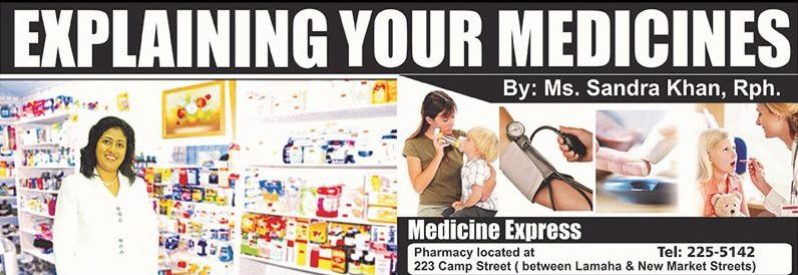A HARMFUL or defective drug is recalled or removed from the market because of violation of regulation(s) or infliction of injurious effects on the consumer or the causation of death. These harmful effects experienced would have been reported by the consumer and officially documented by the regulatory authority prior to the activation of the recall protocol. Quality, efficacy and safety are the watchwords for combating malpractices such as mislabeling, contamination and alteration of product potency of the batch of products in question.
Almost 8000 products have been recalled worldwide during the period 2013 to 2018 with a current upward momentum. This has been attributed to a deviation from Good Manufacturing Practice (GMP) along with the implementation of low cost strategies, where raw materials are being sourced from India, China and multiple other countries with lax regulatory inspection. Reports indicated that 2500 legally registered drug manufacturing facilities remain uninspected for five years and an additional 1600 sites, of which 400 were outside of USA, had not been inspected over 10 years.
The protocol of the drug recall policy must ensure a prompt response that is handled properly. This includes classification of the drug recall, activation of a public alert and a safe sweep of the defective product from the market. Drug recall can be voluntary by the manufacturer or FDA requested, which is usually urgent due to the associated potential harm. It could also be FDA mandatory where a public warning is issued and ordered within the statutes of limitation.
Recalls are publicly posted on the website of the regulatory authority with the relevant details such as lot or batch number, consumer alerts and justification for the action.
All types of pharmaceutical formulations can be recalled such as oral, topical, injectable and inhalers. Prescription only medicine (POM), over the counter (OTC), nutritional supplements and herbal products are some of the categories of pharmaceutical products which have been recalled.
Highlights of international drug recalls:
* In July 2019 the entire range of the brand “Herbal Doctor Remedies”, which were marketed without the FDA approval and sold mostly online, were all recalled voluntarily since the labels encouraged unproven self-diagnostic treatments and the quality assurance of the finished products were not substantiated.
* A leukemia injection idarubicin manufactured by Teva was removed from circulation since it was found to contain particulate matter, which could potentially cause stroke and in worst case scenario, death.
* Banana Boat sunscreen products were recalled over carcinogenic concerns due to presence of benzene.
* In 2009 hydroxycut, a weight loss formula, caused one death and numerous liver impairment and hence was recalled.
Most recently in Guyana, a consumer alert was issued on July 12TH by the FDD (Food and Drugs Department) for the recall of a batch of the Jergens Ultra Healing moisturiser, a voluntary recall by the manufacturer, in which Pluralibacter gergoviae bacteria was detected causing immunocompromised persons to be at high risk.
Also in February 2022 there was another local voluntary batch recall by the distributors of Similac, a product of Abbott Laboratories of USA with a public health announcement warning the responsible guardian of infants to immediately discontinue the use of those products highlighted. The company voluntarily recalled their products due to four consumer complaints in the United States where those infants who consumed this batch had Cronobacter sakazaklii and salmonella Newport.
Likewise in March 2020 Guyana recalled the Purcill brand of hand sanitiser, where only 0.53 per cent alcohol was found in the product, whilst the label indicated 62 per cent. This was at the beginning of the COVID-19 pandemic where sanitisation was mandatory.
FDA has three drug recall classifications:
Class 1 – may cause serious injury or death
Class 11 – may cause serious injury or temporary illness
Class 111 – violate FDA regulation but unlikely to cause serious injury or illness
The most impressionable drug recalls noted over time were:
* DES or diethylstilbesterol, which was recalled after 37 years on the market. It was taken during pregnancy to prevent miscarriages and other pregnancy complications. Years later it was found to be connected to a rare tumor in the daughters of those who consumed it.
* FENPHEN, short for fenfluramine/ phentermine paid out almost US$14 B to healthy victims who to experienced heart and pulmonary problems after taking this magic weight loss pill.
* VIOXX was recalled in 2004 after being marketed and utilised for five years and used by over 20 million persons for arthritis pain. It was later found to have caused heart attack and strokes. Similarly, Pfizer’s Bextra had the same fate one year later due to the similar class of drug. After one year on the market, they incurred a financial loss to the tune of US$2B due to legal action taken against the company.
* Able laboratories was found to be unable. In 2005 after hitting sales of US$103M the previous year, the company was out of business since their entire product portfolio were recalled for irregular potency profile and had been fraudulently distributing substandard quality products.
Hence the financial ramifications for drug recalls for pharmaceutical companies are highly consequential since substantial claims can be made under the product liability law.
For further pharmacological guidance, contact the pharmacist of Medicine Express PHARMACY located at 223 Camp Street, between Lamaha and New Market Streets. If you have any queries, comments or further information on the above topic kindly forward them to medicine.express@gmail.com or send them to 223 Camp Street, N/burg. Tel #225-5142.


.jpg)











